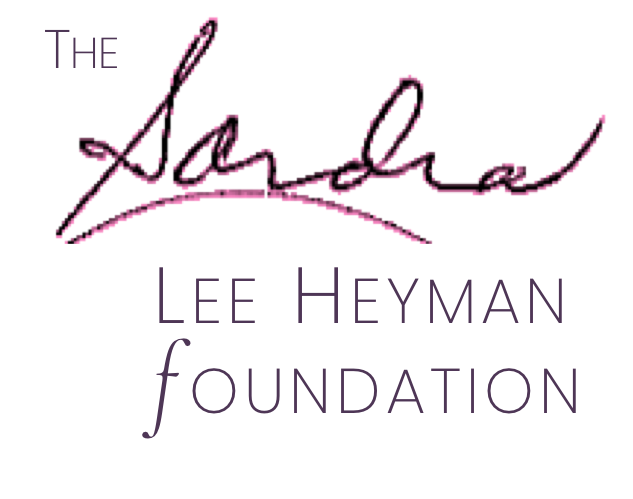An “Accidental” Computer Scientist Explains AI Careers and Offers Tips for High School, College, Careers...and Life
Kathy Pham learned about computer science accidentally. Yet she’s having an extraordinary career in computer science and the fast-developing field of artificial intelligence (AI).
In a September discussion with Sandra Lee Heyman Foundation Fellows, Pham confessed she thought she was signing up for a typing class in high school. It turned out to be a class in Pascal, the computer programming language. Pham pointed to that as the start of a journey which led her to undergraduate and master’s degrees in computer science from Georgia Tech along with stints with Google, IBM, Harris Healthcare, the Federal Trade Commission, directing a committee advising President Biden on AI, and a position as a Harvard University Fellow and teacher.
The daughter of Vietnamese immigrants, Pham said “I always liked math, and I was lucky to have teachers who encouraged me to like math.” That brought her to Georgia Tech, which was in-state and the only college which she could afford; her family did not have a lot of resources and had been on food stamps at one time. She opted for computer science, not knowing what other major to select.
Pham told the Fellows, “My parents didn’t know what engineering and computer science was. They wanted me to...get into medicine or law or pharmacy. Fun fact: You can get into all of that with computer science because computing is everywhere.” It was a combination of lucky happenings and mentorship, Pham said. “It wasn’t like I grew up coding and always knew that this was what I wanted to do. I was pre-med and computer science because I wanted to keep the door open for medical school. I was just confused.”
While other students at college had taken robotics classes and were in international robotics competitions and similar STEM activities, Pham did not. Her summers and weekends were spent working at a nail salon and as a hostess at a restaurant. “I came from a really poor high school with a teacher who taught non-AP computer science in a really weird language,” she said. “What I had that was maybe competitive is that I did a bunch of things outside of class that I was interested in, in different clubs not related to engineering.” She added, “If you have the resources and you are interested in robotics or things like that by all means do it. But she told the Fellows that “High school is a great time to explore other things that you are interested in or learn if you even like something. If you do stuff that you really care about and take it seriously...and do a few things that you can really talk about at depth, that’s what oftentimes will stand out.” Pham conveyed that whether it’s the drama club or volunteering on weekends in social services offices, that really comes through in terms of college admissions. “Knowing that you have grit and that you care about something and are willing to work hard can be really powerful,” she advised.
As a co-op student at Georgia Tech, Pham was alternating semesters taking classes and working for a company. But at a career fair, she was offered an internship with Google Health...and took it. There was no straight path as she continued to explore different fields. “Some people (like me) do really well in the chaos where they say, ‘I am going to try everything,’” she said. Others just know that they are going to study and do for their career. “The path that I chose can bring a lot of anxiety to some people because there’s a lot of uncertainty....Find what works well for you,” she advised.
Pham engaged the fellows in a discussion about AI and described the fundamentals as well as the latest advances in AI, like ChatGPT. She explained how these most recent AI changes have democratized technology, saying “It has changed everything about the moment that we are in with AI and machine learning. Small companies, big companies, and individuals are using AI to do really interesting things, and sometimes really scary things,” Pham said. She went on to describe the kinds of AI-related jobs being created today and where they can be pursued.
As a top tip, Pham offered advice no other guest speaking with Sandra Lee Heyman Fellows had shared to date: “Take care of your bodies. You get one. Eat as well as you can. Exercise when you can. Studying is hard, sometimes you might want to do all-nighters, but nothing beats a focused person going into an exam or going into a big meeting.” Pham concluded by advising, “Taking care of your body, yourself, your relationships can really affect how well you do in school and the workplace and how you treat others – and all of that leads to how successful you really are.”
“If you are interested in other disciplines, it doesn’t rule out a career in tech – just like if you are interested in tech or engineering it doesn’t rule out a career in medicine.”
The Sandra Lee Heyman Foundation is a 501(c)(3) nonprofit organization established in memory of Sandra Lee Heyman, a long-time mathematics teacher at the elementary, middle school, high school, and community college levels. The 18-month long Fellowship is aimed at promising high school students who have the opportunity to meet with STEM leaders, visit prominent institutions in the Washington, D.C., area, and access peers and mentors to support career exploration in STEM fields. There are multiple ways to support the Fellowship program, and donations to the Foundation are tax deductible.

